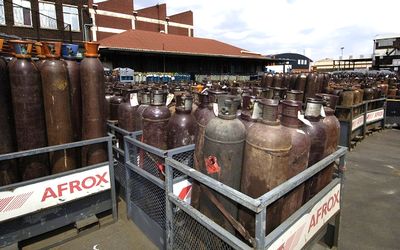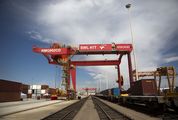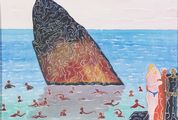New find of helium means MRI scanners — and party balloons — not in danger
by Bruce Gorton
2016-06-29 16:12:39.0
A TANZANIAN helium find has allayed fears of a global shortage of the precious gas.
Despite the fact that it accounts for about 24% of the atoms in the universe‚ helium is rare on earth because it is the second-lightest element on the periodic table — so once it is released it can readily escape into space.
It does not just make your voice squeak — it is also crucial for running things such as brain scanners and scientific facilities. For example, liquid helium is important if you want to cool off your superconducting magnets‚ because it forms at -269°C — the coldest of all the elements.
"There is no substitute for helium in cryogenic applications if temperatures below -269°C are required‚" according to the US Geological Survey (USGS).
It is so crucial in MRI machines that some doctors have proposed banning its use in party balloons.
"All of the other elements we’ve scattered around the globe‚ maybe we can go digging in garbage dumps to get them back‚" chemist Andrea Sella‚ of University College London (UCL) told the BBC in 2013.
"But helium is unique. When it’s gone it is lost to us forever."
Now‚ according to The Guardian, a team from the UK and Norway uncovered 54-billion cubic feet of the noble gas in Tanzania’s Rift valley.
"This is a significant find‚" said Jon Gluyas‚ professor of geo-energy at Durham University and a member of the discovery team. "There are reserves of helium gas‚ but they have been depleting quite quickly. The price has gone up 500% in 15 years."
According to AFP, it is thought that volcanic activity in Tanzania’s section of the Rift Valley created the high temperatures necessary to release the gas from ancient rocks, allowing it to rise up and become trapped closer to the surface, making it ripe for exploitation.
Norwegian mining company Helium One‚ which worked with the scientists on a new exploration technique credited with the find and has three prospecting licences in Tanzania‚ claimed to have discovered‚ "a globally significant helium-bearing province".
With AFP

Picture: FINANCIAL MAIL
A TANZANIAN helium find has allayed fears of a global shortage of the precious gas.
Despite the fact that it accounts for about 24% of the atoms in the universe‚ helium is rare on earth because it is the second-lightest element on the periodic table — so once it is released it can readily escape into space.
It does not just make your voice squeak — it is also crucial for running things such as brain scanners and scientific facilities. For example, liquid helium is important if you want to cool off your superconducting magnets‚ because it forms at -269°C — the coldest of all the elements.
"There is no substitute for helium in cryogenic applications if temperatures below -269°C are required‚" according to the US Geological Survey (USGS).
It is so crucial in MRI machines that some doctors have proposed banning its use in party balloons.
"All of the other elements we’ve scattered around the globe‚ maybe we can go digging in garbage dumps to get them back‚" chemist Andrea Sella‚ of University College London (UCL) told the BBC in 2013.
"But helium is unique. When it’s gone it is lost to us forever."
Now‚ according to The Guardian, a team from the UK and Norway uncovered 54-billion cubic feet of the noble gas in Tanzania’s Rift valley.
"This is a significant find‚" said Jon Gluyas‚ professor of geo-energy at Durham University and a member of the discovery team. "There are reserves of helium gas‚ but they have been depleting quite quickly. The price has gone up 500% in 15 years."
According to AFP, it is thought that volcanic activity in Tanzania’s section of the Rift Valley created the high temperatures necessary to release the gas from ancient rocks, allowing it to rise up and become trapped closer to the surface, making it ripe for exploitation.
Norwegian mining company Helium One‚ which worked with the scientists on a new exploration technique credited with the find and has three prospecting licences in Tanzania‚ claimed to have discovered‚ "a globally significant helium-bearing province".
With AFP




















